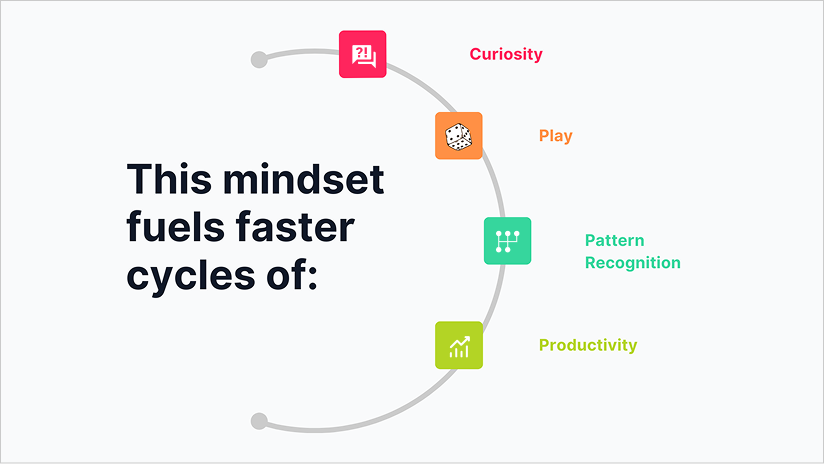From Expert to Explorer: The Mental Model Shift Driving AI Fluency

The future of work doesn’t belong to those who know the most. It belongs to those who learn the fastest.
🧠 Why Skills Aren’t Enough Anymore
For years, success in work meant climbing a ladder of expertise:
- Study the field
- Master the rules
- Build confidence through mastery
But AI changes the terrain. The rules shift weekly. Tools evolve daily. What worked yesterday… might be outdated by tomorrow.
This means traditional mindsets around knowing break down. In the age of AI, fluency doesn’t come from mastery. It comes from mindset.
And the key shift? From Expert → to Explorer
🔄 Two Competing Mental Models
Let’s break down the default mindset vs. the new fluency mindset:
| Mindset | The Expert | The Explorer |
|---|---|---|
| Belief | “I need to understand before I act.” | “I learn by doing.” |
| Emotion | Seeks certainty, avoids error | Embraces uncertainty, expects surprise+ |
| Behavior | Reads more docs, hesitates to act | Tries prompts, iterates fast |
| Social | Asks polished questions | Shares rough drafts |
| Success Metric | Correctness, depth of knowledge | Velocity of learning, usefulness of outcome |
In a world that’s stable, being an expert works.In a world that’s changing fast, it’s limiting.
🧱 Why the “Explorer” Mindset Wins in the Age of AI
AI tools don’t need you to be perfect.They need you to be engaged.
The Explorer:
- 🧪 Experiments without ego
- 🧭 Uses AI as a co-thinker, not just a tool
- 🔁 Iterates in public, not in silence
- 👥 Builds shared language with others
- 🔍 Sees prompting as pattern discovery, not just instruction-giving
Which is how fluency compounds.

💬 How to Spot the Mindset in Action
Explorer thinking shows up when people say things like :
- “Let’s see what happens if I try this…”
- “That output was weird. Why did it respond that way?”
- “I copied this prompt from our teammate—it worked way better!”
- “I asked ChatGPT to critique my draft before I sent it.”
These aren’t technical behaviors. They’re cognitive postures.
They signal people are co-evolving with AI—not resisting it.
🛠️ How to Nudge Your Team Toward Explorer Mode
| What You Want | What You Do |
|---|---|
| ✨ More experimentation | Celebrate unusual uses of AI in standups |
| 📢 More sharing | Set up a weekly “Prompt of the Week” thread |
| 🔁 More iteration | Ask “What did you learn from this version?” not just “Is it right?” |
| 📈 More confidence | Track prompt attempts, not just outcomes |
Replace "Did you use AI this week?"with "What surprised you about using AI this week?"
🧭 Mindset Shifts Drive System Shifts
If you only teach tools, you get temporary competence.If you shift mindset, you build adaptive capacity.
This is what makes AI fluency future-proof.
Because it’s not about learning this week’s tool.
It’s about becoming the kind of person who learns, plays, and adapts—no matter the tool.
🪞 Final Prompt: Which Mindset Are You Operating In?
Ask yourself:
- Am I waiting to “get it right” before trying?
- Am I holding back prompts because I fear they’re “dumb”?
- Am I optimizing for polish… or for exploration?
Then flip it:
- What would the Explorer version of me do today?
Because in the AI era, expertise won’t protect you.
Curiosity will.